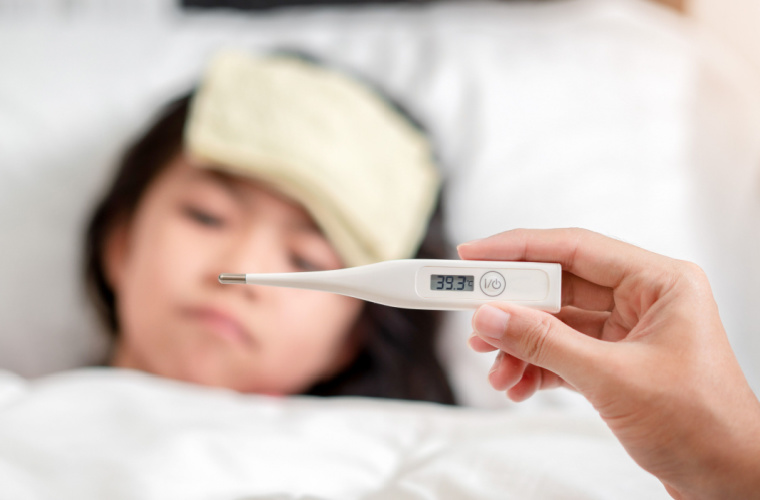Fighting Fevers: The Do's and Don'ts Every Parent Should Know

Parenting comes with its fair share of challenges, especially when your little ones are feeling under the weather. Fevers, in particular, can be a cause for concern, but knowing how to respond effectively can make a big difference. With the help of Dr. Christina Canody, pediatrician and medical director for the pediatric service line at BayCare, here are the key do's and don'ts every parent should keep in mind when their child has a high temperature.
The Do's:
1. Do Monitor Their Temperature.
Keep a reliable digital thermometer on hand to keep track of your child's temperature accurately. Regular monitoring, including after administering a fever reducer, can give you a clear picture of how their fever is progressing.
When checking your child's temperature, it's important to use the right method for their age. Here's a quick guide:
- Infants (0-3 months): Rectal thermometer for accuracy.
- Older babies (3-6 months+): Ear or temporal artery thermometers.
- Kids (4+ years): Oral or ear thermometers.
2. Do Keep Them Hydrated.
Fever can lead to dehydration, so it's crucial to keep them hydrated. Encourage your child to drink plenty of fluids like water, electrolyte solutions, or clear soups.
3. Do Dress Light.
Dress your child in light, breathable clothing to help regulate their body temperature.
4. Do Use Fever-Reducing Medication, if Necessary.
If your child is uncomfortable or in pain, consider using age-appropriate fever-reducing medications like acetaminophen or ibuprofen. Always follow the recommended dosages based on your child’s age and weight.
5. Do Seek Medical Advice if Fever Persists.
If a fever persists for more than a couple of days, or if your child's condition worsens, consult a health care professional. They can diagnose the underlying cause and prescribe appropriate treatment.
"Fevers can vary in children depending on their age due to differences in immune responses. Typically, the younger your child, the more concerning a fever becomes,” Dr. Canody with St. Joseph’s Children’s Hospital explains. You should call the doctor immediately about your child's fever if:
- They are under 2 months
- They are 3-6 months with a fever of 102 F or higher
- They are 6 months or older with a fever of 103 F or higher
- They have a fever lasting more than 3-5 days at any age
The Don'ts:
1. Don't Use Cold Baths or Ice Packs.
Contrary to common belief, using cold baths or ice packs to lower a fever is not recommended. These methods can cause shivering, which raises the body temperature further.
2. Don't Bundle Them Up.
While it's essential to keep your child warm, avoid excessive bundling to “sweat out” the fever. Overdressing or piling on heavy blankets can trap heat and make the fever worse.
3. Don't Overdose Medication.
Always follow the dosing instructions provided with fever-reducing medications. Be sure to follow dosing intervals to avoid administering doses too closely in time. Don’t combine multiple medications without consulting a health care provider.
4. Don't Panic.
Fever is usually the body's way of fighting off infections. Don't panic if your child has a fever without other concerning symptoms. Stress can affect both you and your child negatively. Focus on providing comfort and care.
5. Don't Delay Medical Attention for Severe Symptoms.
If your child’s fever is accompanied by other worrisome symptoms like difficulty breathing, persistent vomiting, a rash, or a stiff neck, seek medical attention immediately. These could be signs of a more serious condition.
Remember, fever is often a sign that your child’s immune system is doing its job. By following these do's and don'ts, you can help your child through this uncomfortable time. Trust your instincts as a parent, and when in doubt, always consult a health care professional for guidance.
BayCare Medical Group provides convenient access to different care options for pediatric patients. Parents also can conveniently see a doctor using BayCareAnywhere, a 24/7 mobile application offering virtual visits through a smartphone, tablet or computer. They can also see a doctor at Walk-In Care locations at select Publix Pharmacies throughout the Tampa Bay area. BayCare’s 20 urgent care locations throughout Pinellas, Hillsborough, Polk and Pasco counties, also offer quick, high quality health care for adults and children ages two and older.
